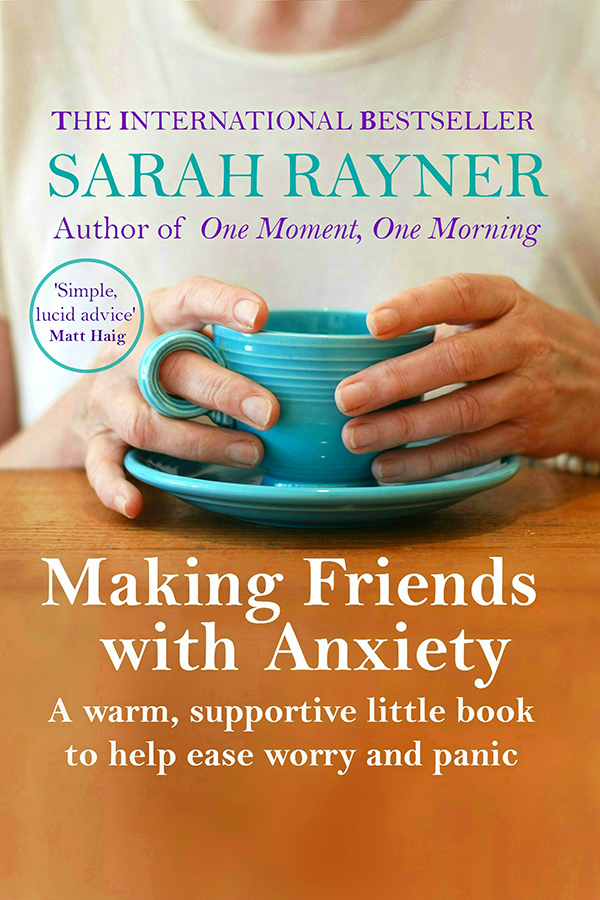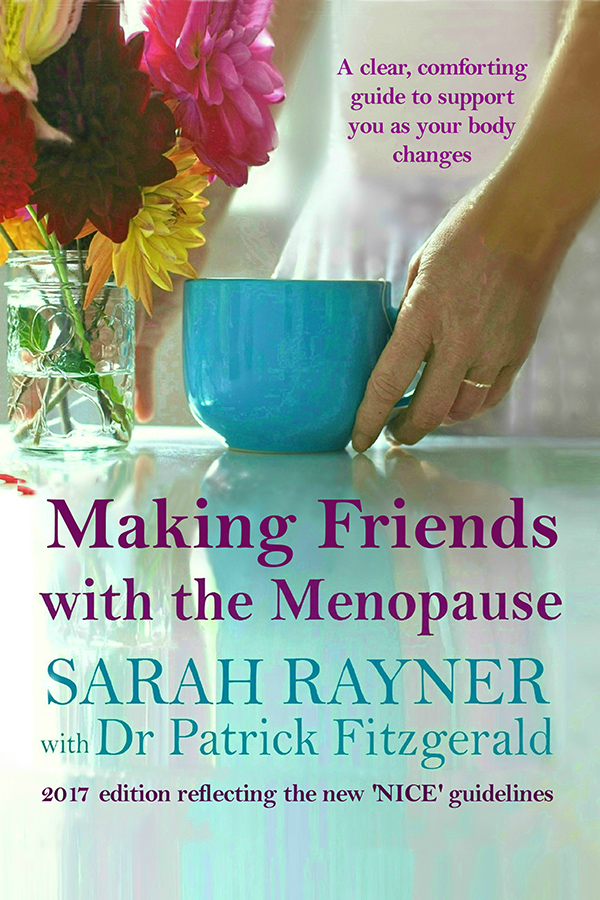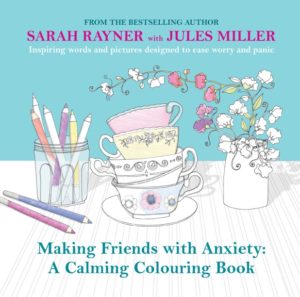Sarah’s top 20 tips for writers
Want to write a book? Here are some tips about writing, most of which I’ve had banged into my brain over the years by people wiser than I am. Many of the tips for fiction writers apply to non-fiction too, so there’s some overlap here with the section on writing fiction on this website, but several of the guidelines are new, and specifically tailored to those wanting to write a work of non-fiction.

Much of my non-fiction expertise has come from copywriting – I worked in advertising for 25 years, and still do the occasional project, so as well as the non-fiction titles I’ve self-published, I’ve written dozens and dozens of guides and brochures that don’t have my name to them and aren’t featured on this author website.
- Your work of non-fiction must have a clear unique selling point (USP).Marketing books is like marketing any product, and it is vital to work out what is fresh and different about yours. Originality is key. What is it about? Which questions does it answer? Who is it aimed at? Think of it as your ‘elevator pitch’ and if you write to agents, use it. And don’t think that if you’re going to self-publish, you won’t need a USP. Arguably, it’s even more important, because readers are going to have to hunt harder to find your book than if you go through a publishing house, as it’s hard to get self-published books into bricks-and-mortar stores. Your chief shop window will invariably be online, and readers will only find you if a search engine or Amazon leads them to your door. It’s much easier to search for a book if it answers a specific need, as there won’t be as many other books clamouring for the same shelf space, albeit in the ether.
- Think positive. Demand for good non-fiction outstrips the demand for fiction by a wide margin. For most people, novels are read strictly for pleasure, whereas non-fiction is something they must also read for work, school, or to manage their lives. It’s non-optional, and that means there’s a lot more of it, and all the more room for you. Moreover…
- …It’s not that hard. I find writing non-fiction is easier than writing fiction, and I don’t think that’s just me. I suspect that whilst not every non-fiction writer can become a novelist, any good fiction writer can learn to write good non-fiction, especially for a general audience. But writing non-fiction does take skill: it requires the ability to explain things, to take evidence and concepts, no matter how complex, and express them in a way that readers will find engaging. So get honing those skills, because whilst writing non-fiction is easier than writing novels, it’s not easy per se.
- How are you going to reach your audience? Because it tends to answer a specific need, non-fiction is often niche, and whether are pursuing a publishing deal or choose to self publish as I did, it’ll be a lot easier if you have a fan base or a large, loyal following of folk who know you in relationship to the topic about which you plan to write. If not, you need to consider how you will build a readership for your book. And don’t think ‘oh, a publisher will do all that marketing stuff’, believe me, they often expect you to do the lion’s share.
- Plan. Although I personally think it unwise, it is possible to write fiction organically, but please, I beg you, don’t even think of writing non-fiction as a stream of consciousness, or anything verging upon it. I see writing a book without any idea of its structure as like building a house without any framework – it won’t be fit for purpose and is extremely likely to fall down. Not only is it important to have a structure so you know where you are headed and don’t get lost; you’ll need a plan to hang all the information on and develop your arguments around. Without one, you will get muddled, and so will your readers. I plan non-fiction very carefully, and start with a skeleton outline, working out what the content will be in each of the chapters.

- This might sound obvious, but every book needs a beginning, middle and end, and this is true of both non-fiction and fiction.In fiction this is sometimes called ‘narrative drive’, but it’s needed in non-fiction too. Even a factual book still needs a story to keep your readers turning the pages and understanding what you’re saying; if fictional stories are a way we ‘make sense of the world’, then non-fiction is that, in spades. You’re taking someone on a journey where they are going to be learning from you as they read, and you’ll need an introduction and logical trajectory. To illustrate, you wouldn’t write A History of World War 1 starting in 1918 and finishing in 1914 (unless, of course, that’s your USP, but I wish you luck if it is); nor would you write a start a How to Care for Your Cat guide by explaining how to have him put down when he’s old and poorly. I find it’s helpful to see this notion of beginning/middle/end as like an arrow flying from a bow. Your narrative should arch up, full of energy, then carry itself on through the middle section (which is often the hardest bit to write) before coming down to rest with an ending that feels ‘right’, because it’s answered what you set out to do at the beginning. Alternatively, you might like to think of narrative flow in terms of a school science project: remember when you had to write an experiment up, divided into your ‘Method’, ‘Results’ and ‘Conclusion’? You could see the notion of having a ‘beginning’, ‘middle’ and ‘end’ in those terms, too. So even if your ‘conclusion’ is inconclusive, you still have to summarize what you’ve observed, just like a scientist would.
- Use elements of the novel: scene, setting, characters, dialogue, drama to create pace, and don’t rush to say everything at the start. When I shifted from copywriting to writing books, I delivered everything too fast, whereas a good book doesn’t reveal everything at once. Non-fiction needs to have pace, but if you go too fast, your readers will be overwhelmed.
- Don’t bite off more than you can chew. A History of World War 1 is a tricky place to start, especially if you’re relatively new to the subject. So begin by writing what you know about, and test the waters. Write some blog posts or articles that deliver your message. If your idea has legs, people will want a book-length treatment of it.Then, if you can, start with something short. My first non-fiction book was Making Friends with Anxiety, but before I published it I wrote a series of blogs for a mental health website called Moodscope on the subject. The response to these blogs was very positive – people seemed to like getting advice on anxiety from someone who admitted to have problems with it, too, as opposed to a ps
 ychologist or doctor, so I knew I was onto something. But the book is short – at 20,000 words it is less than a quarter of the length of any of my novels. After that I tackled a bigger subject that required more research in the form of Making Friends with the Menopause, and consulted my friend, GP Patrick Fitzgerald (below, right) to ensure the book was medically accurate. If you start off by writing a book that’s 100,000 words or more that requires a lot of research, it’s like trying to run a marathon without ever having jogged a mile.
ychologist or doctor, so I knew I was onto something. But the book is short – at 20,000 words it is less than a quarter of the length of any of my novels. After that I tackled a bigger subject that required more research in the form of Making Friends with the Menopause, and consulted my friend, GP Patrick Fitzgerald (below, right) to ensure the book was medically accurate. If you start off by writing a book that’s 100,000 words or more that requires a lot of research, it’s like trying to run a marathon without ever having jogged a mile. - Do your research. Gain a road knowledge of the main things that have been said in your field of enquiry. Interview lots of people. Ask anybody and everybody what their thoughts are about your topic, particularly if they have direct personal experience. Then quote them to bring your text alive. (Show, don’t tell, in other words.)
- Personally, I have to believe in what I’m writing. I don’t mean I have to make a political point, just focus on something that matters to me. If you’re passionate about your subject, you’re much more likely to convey that enthusiasm to your readers, and make them care about the subject too, which will make for a much more enjoyable book.
- Read other non-fiction books. Obviously you’ll want to be familiar with competitor books out there: there’s no point doubling up on something that already exists.
 You can also learn from other authors working in your genre. But it’s important to read outside your comfort zone and/or area of expertise: I’ve been in a book group for 17 years and we’ve read Naomi Klein’s No Logo and Malcolm Gladwell’s The Tipping Point as well as Helen Macdonald’s memoir, H is for Hawk, and Jung Chang and Jon Halliday’s biography, Mao, for instance. I’m always coming across authors who stimulate me, and I try to learn from them. A writer never finishes mastering her craft.
You can also learn from other authors working in your genre. But it’s important to read outside your comfort zone and/or area of expertise: I’ve been in a book group for 17 years and we’ve read Naomi Klein’s No Logo and Malcolm Gladwell’s The Tipping Point as well as Helen Macdonald’s memoir, H is for Hawk, and Jung Chang and Jon Halliday’s biography, Mao, for instance. I’m always coming across authors who stimulate me, and I try to learn from them. A writer never finishes mastering her craft. - Sort out grammar and spelling. An editor told me years ago typos ‘stop a reader trusting you’. Don’t show a manuscript to a publishing professional or self publish anything without going through it with a toothcomb. Imagine your reader is in a shop buying clothes – why would she bother with an item with a broken zip? It is not easy to spot errors so ask other readers to help, and if there are typos in this website I apologize – it only proves I still have lots to learn.
- 90% of writing is rewriting. Redrafting is crucial. Taking time between drafts helps objectivity, as does changing the font. It means you’ll see it with a fresh eye. Read your draft aloud so you can hear what you’ve written – good prose is poetic, and you’re much more likely to notice repetition and sentences which are so long you ‘re left gasping for breath. Overall, when you edit, be tough on yourself. I get asked to read a lot of manuscripts – imagine how many agents and editors get – and a vast amount is lazily written. Words need honing. Try to avoid repetition and clichés. Check tenses don’t jump about, and take a hatchet to superfluous passages. Ask yourself: why am I using this detail? If you don’t know the answer, cut it. Use nouns and verbs more than adjectives and adverbs. And use illustrations; again like a novel, show, don’t tell.
- If you write to an agent, make sure your letter is pithy and sells your book. Your letter is your calling card – it has to work very hard for you. I’d recommend buying The Writers’ and Artists’ Yearbook, which gives practical information about copyright and finance, submitting a manuscript and self publishing, as well as being a comprehensive up-to-date guide to literary agencies and the media. Check the agency accepts new material, and then write to someone who represents authors in your genre. Don’t send an agent who represents crime novelists a cookery book, and find out if they prefer to see a couple of chapters and a synopsis or the whole book. Format it in the way they want, too – they get dozens and dozens of manuscripts and will reject yours given the slightest excuse.
- Don’t expect to make much money. That’s a myth. You need to sell an awful lot of books to make a living. Not long ago I read the average income for a published author in the UK is £10,000 a year. Even when I’d got a deal my agent said ‘don’t give up the day job’ as many authors on her list also do something else. Also, it’s worth your agent keeping hold of your foreign rights. Selling translation rights can bolster an income substantially, and help with cash flow. Otherwise it can be very feast or famine. That said…
- Make time to write. You either need to be very disciplined and carve out space in your schedule, or rethink the nature of how you earn a living in order to be an author. I found to create head space for creativity I needed to cut back on copywriting, as the last thing I felt like doing after writing all day was doing it again at night, so I gave up a full-time job back in 1998.
- Choose a unique place to write. Ideally ‘a room of your own’ as Virgina Woolf said (that’s her typewriter, top, and bedroom here) but we don’t all have such luxuries. But if possible, this does need to be different from where you do other activities, so a corner of the kitchen table isn’t the best option. The idea is to make this a special space so that when you sit down at your desk, you’re ready to work on your project.

- Give yourself a deadline.Then you have something to aim for. Tell a couple of people you trust when it is, and ask them to hold you accountable.
- Learn to take criticism. In these days of the internet, we authors have less of a buffer between us and online reviews, which can be tough, but to be an author you need to be able to take feedback from the off. I find I need to be in touch with my feelings to write – so initially I have to bury my inner critic – then I have to bring her out to help with my redrafts and feedback from my editor. ‘Slay your darlings’ is what they say, and it’s good advice – it means don’t be overly precious about your work. However, sometimes you don’t need to follow what an editor suggests to the letter. It’s more important to consider what she or he wants you to achieve in a broader sense, rather than amend your manuscript exactly the way they say. If they want you to cut section completely because they feel it’s redundant, for instance, you may find that rather than deleting it, that it’s worth completely rewriting it so it works a lot harder. Both achieve same result – improving pace – in different ways.
- Finally, the maxim ‘if at first you don’t succeed’ is pertinent to non-fiction writing. Publishing can be very ‘me too’ – look at all the celebrity memoirs out there currently, or clean eating books – so keep slogging. Although it’s flattering to have a bidding war, a book only needs one publisher – and these days, you can even do it yourself.
In short, keep at it.













DEC
2015
